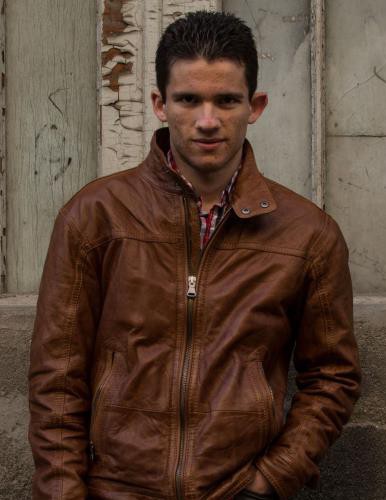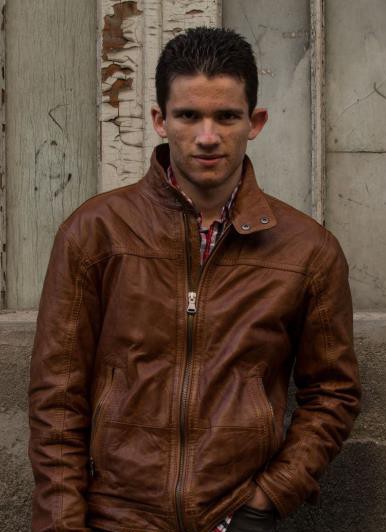Bogomil is a young Bulgarian poet studying in England. He publishes his work on his own blog ‘Black Flag Poetry‘. For Spotlight Europe, he gives an interview on his work and inspiration.
1. Why did you choose this specific name for your blog and poetry work?
The black flag is the infamous insignia of the pirates, the symbol of the rebels during the German Peasant’s War and the Black Guards during the Russian Revolution. Ironically, it is also the flag raised in front of a prison signifying an upcoming execution. It is a flag standing for the absence of a flag, the Mare Liberum of the fleets of national identity. Ultimately, it represents the No Man’s land populated by the minds in exile, by those most unwilling to surrender.
What actually made me choose this title is a quote from the Bulgarian new wave musician Dimitar Voev which goes roughly like this: “Wave a black flag on which it is written without words “It’s filthy inside me”.”
2. What made you want to start a blog about poetry?
My blog is private and not indexed on the Internet. It’s purpose is bibliographical. It is a convenient way of having a holistic view on your work, as one is able to follow his progress through time summarised on a computer screen.
3. All of your poems are in English. That is quite remarkable as your mother tongue is Bulgarian – Why did you choose English as language for your poems?
Most of my poems are not initially written in English, but in Bulgarian. I am gradually translating them into English (following the steps of Brodsky and Nabokov), obviously because it is a lingua franca and because, in my opinion, the successful transition of a poem between several languages is a litmus test of its well-craftedness. It is not a novelty in the scientific or the philosophical world that human thought speaks in an universal language and I believe, ultimately, human languages are an important but trivial matter when it comes to fine literature. Such literature always speaks in strictly humanistic terms and stands on a higher abstraction level then let’s say what we call German or English.
4. What are the main topics of your poems?
Every time you had something on the tip of your tongue but couldn’t find the right words to express or the people to talk to – that is my topic.
As Adrian Mitchell once said:
“We must speak
instead of the poor,
instead of the deranged,
instead of the dying from hunger,
instead of the fighting for freedom,
instead of all children,
instead of all thrown into jail,
instead of the senile,
instead of the unborn, instead of the dead,
instead of the animals and the birds,
instead of the earth, the water and the sky.
These are our brothers and sisters. Every day one of them is being ridiculed. They are being destroyed, oppressed and murdered. The revolution, which could set them free, has just begun. In order to succeed, this revolution must be a revolution of empathy, which will bring us closer to a more peaceful and less vulgar world.”
5. Is there something that especially inspires you?
Strangeness. I always fall in love with bizarre people and circumstances slightly (but not too much) detached from reality – people whose shadows are not copycats
6. How much time does it take you to write a poem?
A poem is not meant to be written. It is to be edited. For a long time. And then either the author and/or the poem dies. People then gather and mourn for a while and start reading it aloud. And then they get some ideas and start writing themselves expanding on the previous one. The original poem has started a long time ago with the first heartbeat of the first broken heart.
7. What do your friends and family think about your hobby?
If life is an exam, my poetry is my private notes. You can look at them on your own risk of being expelled.
8. Do you follow other poetry blogs? (Is there something like a poet network in the internet?)
I don’t follow blogs or magazines or newspapers. I follow my eyes. 21st gives us an unprecedented opportunity to choose and pick in an extremely fast pace. We have at hand the luxury to filter our information based on the quality of the content and form instead of blindly following blog X or magazine Y.
About the interview partner:

Bogomil (20) participated in the “My Europe” workshop in Sofia, Bulgaria, in 2012. He currently studies Computer Science at the University of Southampton in England. He loves poetry and playing football.






